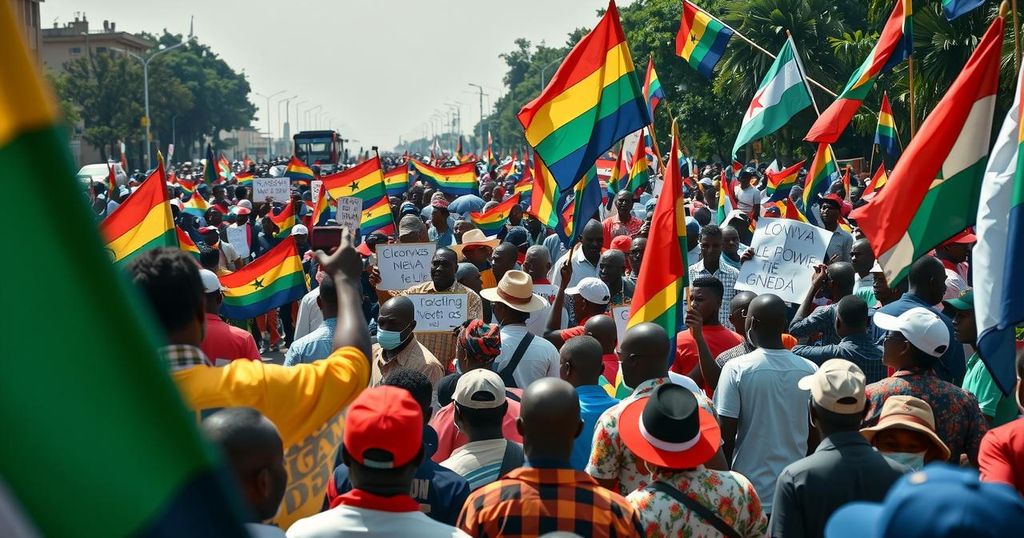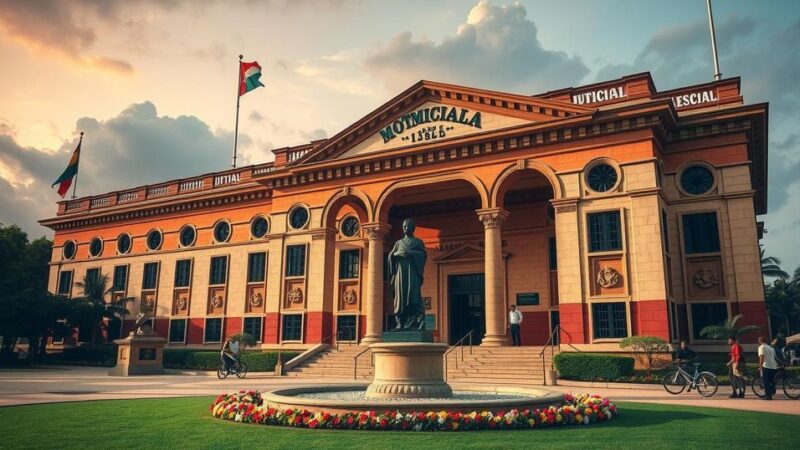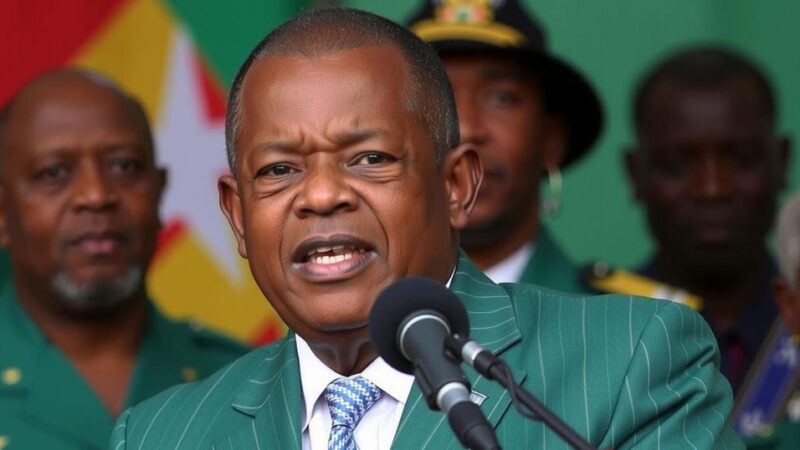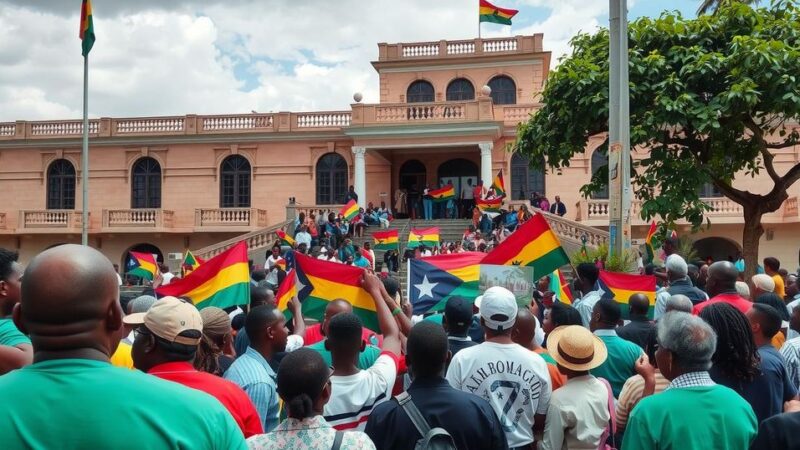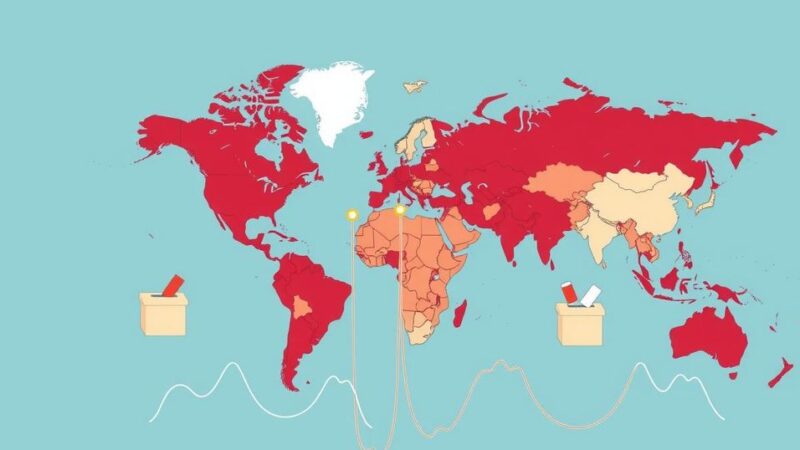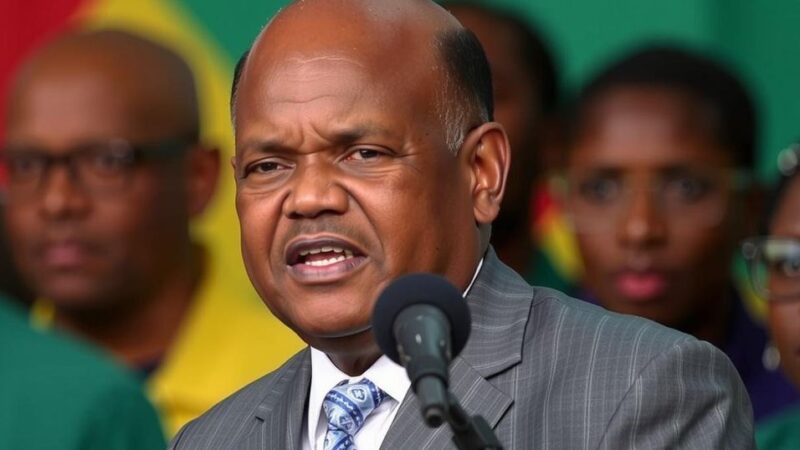The upcoming elections in Ghana pose a significant threat to the LGBTQ+ community as leading candidates advocate for stricter anti-LGBTQ+ laws. The proposed legislation could impose harsh penalties on same-sex activities and punish those who do not report LGBTQ+ individuals. Amidst rising anti-LGBTQ+ sentiments, activists fear increased discrimination and violence against sexual minorities as the Supreme Court prepares to rule on the bill’s constitutionality after the elections.
In Ghana, the upcoming general elections have revealed a disturbing trend regarding LGBTQ+ rights, with leading presidential candidates pledging increased restrictions to capitalize on deep-rooted anti-LGBTQ+ sentiments. The winner of the upcoming vote on December 7 may confront a crucial decision regarding a controversial bill that could impose prison sentences for identifying as LGBTQ+. The Supreme Court is set to assess the constitutionality of this bill on December 18, shortly after the elections, creating an environment of uncertainty for the LGBTQ+ community.
The ruling party candidate, Mahamudu Bawumia, has made clear his intention to enact the bill, while his opponent, former president John Dramani Mahama, has not openly endorsed it but has called for stronger anti-LGBTQ+ laws. This political maneuvering places individuals such as Abena, a member of the LGBTQ+ community, in a precarious position, feeling alienated and unsafe as their future rights hinge on the decisions of these candidates.
The proposed legislation would significantly expand the criminalization of LGBTQ+ activities, including severe penalties for same-sex relations, and would criminalize advocacy efforts aimed at supporting sexual minorities. Furthermore, it introduces penalties for individuals who fail to report anyone suspected of being LGBTQ+, amplifying fears of family and friends being compelled to turn against one another.
The ongoing discourse surrounding the bill has intensified existing animosity towards LGBTQ+ individuals in this religiously conservative nation. A 2021 survey indicated that a mere 7% of Ghanaians were accepting of same-sex relationships, underscoring the pervasive homophobia that has permeated societal attitudes. Activist Michael Akagbor remarked on the detrimental impact the bill has had on public perception, stating that despite it not yet being law, it has significantly influenced people’s views, resulting in increased hostility towards LGBTQ+ persons.
As political parties focus on outdoing one another in their anti-LGBTQ+ rhetoric, advocates warn of potential escalations in violence and discrimination against sexual minorities. The law would not only limit the opportunities for LGBTQ+ individuals but would also force many into hiding due to fear of repercussions, resulting in profound social and economic consequences.
The international community has responded with alarm, notably the European Union, which called the bill deeply alarming and a violation of Ghana’s constitutional and human rights obligations. The implications of the bill have broad repercussions, including possible loss of foreign aid. The court’s ruling in the coming weeks could either preserve or escalate the climate of fear and discrimination for LGBTQ+ individuals in Ghana, leading Abena to lament the absence of safe electoral choices in a country rife with anti-LGBTQ+ sentiments.
Ghana’s LGBTQ+ community is currently facing severe challenges amidst a political atmosphere that fosters discrimination. In the lead-up to the elections, both main presidential candidates are pledging to reinforce anti-LGBTQ+ legislation, which reflects a broader societal contempt for sexual and gender minorities. The proposed legislation, while not yet enacted, has already intensified public hostility towards LGBTQ+ individuals, revealing the precarious situation they face. The Supreme Court’s upcoming ruling on the bill’s constitutionality may create significant consequences for this marginalized community, shaping their future in Ghana dramatically.
In conclusion, the political climate in Ghana is becoming increasingly perilous for the LGBTQ+ community, as presidential candidates leverage anti-LGBTQ+ sentiments to mobilize support ahead of the elections. The proposed legislative measures threaten to exacerbate existing discrimination, fostering a hostile environment that discourages acceptance and understanding. As the Supreme Court prepares to rule on the constitutional validity of this bill, the potential implications for LGBTQ+ rights and safety remain uncertain and alarming for those affected.
Original Source: www.voanews.com

